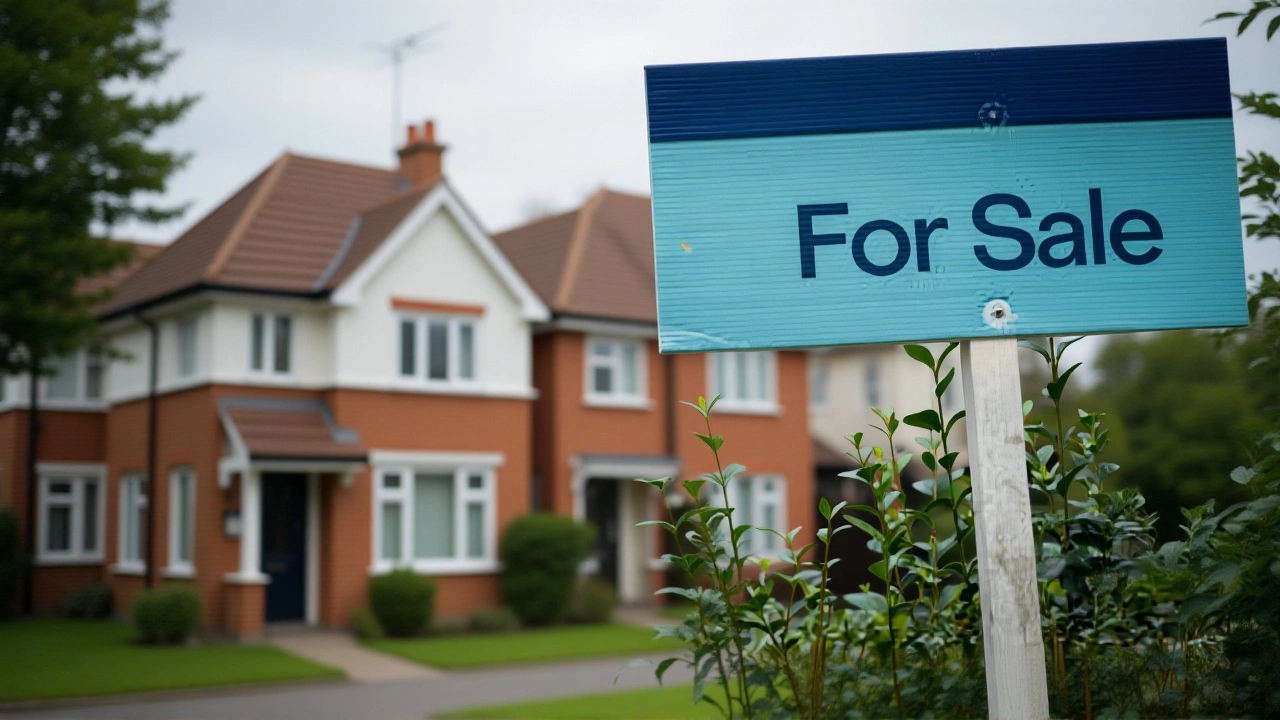When Kemi Badenoch, Leader of the Conservative Party took the stage at the Conservative Party Conference 2025Manchester on October 8, 2025, she dropped a bombshell: a promise to abolish stamp duty on primary residences if the party wins the next general election. The announcement, delivered at 9:14 PM UTC, was framed as a way to "free up our housing market" and was estimated by Channel 4 News to cost about £9 billion. Critics immediately questioned how the government would fund the giveaway, while supporters cheered the prospect of cheaper home ownership.
Why stamp duty has become a political flashpoint
Stamp duty land tax (SDLT) has long been a revenue source for the Treasury, levied on property purchases above £250,000 in England. As of October 2025 the standard rate sits at 5 % on the slice between £250,000 and £925,000, climbing to 10 % for the next band and even higher for second homes or buy‑to‑let properties. Housing affordability has deteriorated in recent years; the Office for National Statistics reports that the proportion of renters saving for a deposit slipped from 31 % in 2020 to 24 % in 2024.
For the Conservatives, who have traditionally championed home‑ownership, the tax is increasingly portrayed as a barrier. Badenoch’s own briefing notes described it as "a bad tax" and "unconservative" – language that echoes a broader party narrative that taxes on property stifle mobility and dampen economic growth.
The conference moment that stole the headlines
Midway through her closing address, Badenoch paused, looked out over the packed arena and said, "Conference, the next Conservative government will abolish stamp duty on your home. It'll be gone." The crowd erupted in applause, and she added with a grin, "I thought you'd like that one." By the time she finished, participants were chanting, "Stand with me and let's build it together" – a clear sign that the policy had hit a nerve.
She positioned the pledge alongside a historic litany: "In the 1940s our test was to defeat fascism; in the 1980s it was to banish socialism; in the 2020s our test is to restore a strong economy and secure our borders." By linking the tax cut to national destiny, Badenoch turned a fiscal proposal into a rallying cry.

Financial analysts and media weigh in
Channel 4 News ran a quick cost‑benefit sketch, estimating that eliminating SDLT on primary homes would reduce Treasury receipts by roughly £9 billion per year. The institute’s own briefing noted that the UK’s fiscal headroom has been shrinking since the COVID‑19 pandemic, raising doubts about how the £9 billion gap would be closed without either raising other taxes or cutting spending elsewhere.
"The projected savings that are meant to pay for it are far from certain," said a senior economist at the London School of Economics, who asked on BBC Radio 4 whether the policy could be financed through a modest increase in the VAT rate.
Meanwhile, Thomas Pope, a senior fellow at the Institute for Government, wrote in an op‑ed that the plan "has ducked the hard‑nosed tax considerations" that any realistic budget would demand. He warned that past attempts to overhaul property taxes, such as the brief experiment under former Prime Minister Liz Truss in 2022, had left a lingering scepticism among fiscal hawks.
Regional limits and political backlash
One snag that quickly emerged in the coverage: the pledge applies only to England. Scotland and Wales retain devolved powers over their own land‑tax regimes, meaning the abolition would not extend there. The BBC highlighted that Scottish and Welsh officials have already signalled they would keep their existing rates, creating a patchwork of rules that could complicate cross‑border moves.
Within the party, not everyone is on board. A junior minister in the Treasury reportedly raised concerns that the move could erode the government's ability to fund the NHS and education spending commitments made in the latest comprehensive spending review.
Opposition Labour leader Keir Starmer dismissed the proposal as "populist tax‑cut theatre" during a Prime Minister’s Questions session on October 10, 2025, arguing that the money would be better spent on affordable‑housing construction rather than a tax giveaway.

What’s next? From promise to policy
If the Conservatives win the next general election – expected by early 2026 – the stamp duty abolition would have to pass through several stages: a white‑paper outlining the fiscal impact, a draft amendment to the Finance Act, and finally a vote in both Houses of Parliament. Given the narrow majority the party is projected to hold, the policy could become a bargaining chip in any post‑election coalition talks.
Housing market analysts are already adjusting their models. "We expect a short‑term boost in transaction volumes," said a senior analyst at Zoopla. "But the longer‑term effect will hinge on whether the supply side can keep up with the surge in demand that a tax holiday typically creates."
For prospective buyers, the promise offers a tantalising glimpse of a future where the first‑time buyer can keep more of their savings. For the Treasury, it represents a fiscal gamble that will test the party’s ability to balance voter-friendly promises with the hard maths of a £9 billion annual shortfall.
Frequently Asked Questions
How would abolishing stamp duty affect first‑time homebuyers?
Without SDLT on primary residences, a buyer of a £300,000 home would save about £2,500 in tax. That extra cash could go towards a larger deposit, reducing mortgage‑interest costs and potentially speeding up the purchase timeline. However, the benefit would only apply if the policy is enacted after the next election.
What impact could the £9 billion cost have on public services?
If the Treasury does not find offsetting savings or new revenue streams, there could be pressure to trim spending elsewhere. Analysts warn that the shortfall might force cuts to local council budgets or delay infrastructure projects unless the government raises other taxes, such as a modest increase in VAT.
Why doesn’t the policy apply to Scotland and Wales?
Stamp duty land tax is a devolved matter in Scotland and Wales, meaning those governments set their own rates. The UK‑wide pledge therefore only covers England, leaving the Scottish Land and Buildings Transaction Tax (LBTT) and Welsh Land Transaction Tax (LTT) untouched.
What are the chances the policy will survive a parliamentary vote?
With the Conservatives projected to hold a slim majority, the policy could be vulnerable to backbench rebellion, especially from Treasury‑focused MPs. The government would likely need to sweeten the deal with other fiscal measures to secure enough votes.
How does this proposal compare to previous Tories' housing pledges?
Previous Conservative manifestos have promised to raise the SDLT threshold or introduce first‑time‑buyer relief, but outright abolition is a step further. The last time the party flirted with a full repeal was under David Cameron in 2015, but the idea was dropped amid fiscal concerns.
